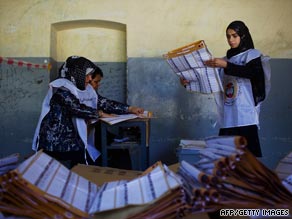
If Democratic lawmakers thought all the furor over President Obama's health care plan expressed this month at town hall meetings was dying down, they might be in for a surprise Saturday.
That's when citizens are planning anti-"Obamacare" rallies across the country Saturday in all 435 congressional districts.
And their message is clear: We will not stand for socialized, government-controlled health care.
The same groups who made the "tax tea parties" possible in April are behind this weekend's movement. American Liberty Alliance, FreedomWorks and Americans for Prosperity are working with The Sam Adams Alliance, among others, to stage the rallies.
Click here for more information on the rallies.
They come as town hall clashes between Democratic lawmakers and protesters of Obama's health care plan have captured national attention. Some Democrats have dismissed those protesters as "mobs" organized by special interests. But many protesters have said they attended the town halls out of genuine concern.
Now they can express their concerns at Saturday's rallies.
"Obviously the idea behind this was to have a unified day for those concerned about government-controlled health care to talk outside their representatives' offices," said Paul Miller, spokesman for The Sam Adams Alliance, a Chicago-based political organization which is one of several groups promoting the event through new media.
Miller said this is a personal issue for many opponents, including himself, a 22-year cancer survivor. Miller, who was diagnosed with a rare cancer at the age of 14 and had his right arm amputated to save his life, says he would not have received the same specialized and speedy medical care if the government was in control.
"There isn't this great conspiracy to say there shouldn't be health care reform," Miller told FOXNews.com. "People just want to make their own decisions and keep their insurance if they like. When government's get involved, they never do anything right."
Eric Odom, executive director for American Liberty Alliance, the lead group behind the tea parties and the new rallies told FOXNews.com that the rallies differ from the tea parties in that they are being organized from the bottom up.
"We didn't want to try and do what we did on April 15 because the logistics was a nightmare," he said, explaining that local organizers now have more control over the rallies and have only received basic information from the top.
"People at the local level have taken it and created their own animal with it," he said. "This is more bottom heavy."
Odom shrugged at the fact that most of the lawmakers won't be present at their offices on a Saturday because he said the ultimate goal is to get more people politically engaged.
"This Saturday is symbolic," he said, adding that his group will e-mail information to rally-goers on how to air their concerns to their representatives. "Most of these people have never done anything political in their lives."
Phil Kerpen, director of policy for Americans for Prosperity, cautioned that it's "impossible to predict" the turnout at these rallies "because it's very decentralized."
"It could be another big success," he said, or the crowds could be scaled back. Kerpen said the packed town halls this month don't provide much indication either.
"I think there's no better place to make your voice heard and make an impact when you get face to face with your congressman," he said. "The impetus is greater to show up there than here."
Jacki Schechner, spokeswoman for Health Care for America Now (HCAN), a coalition of groups supporting Obama's health care plan, said the rallies are a waste of time.
"There is no government-controlled health care on the table," she said. "They're protesting something that doesn't exist.
"There's a lot of people out there feeding lies and misinformation and trying to get people hyped up about something that doesn't exist. They're wasting their energy."
Odom found irony in the objections raised by proponents of health care reform.
"It's interesting that the world's most professional organizers are upset that we're organizing communities," he said.
But Odom said he hasn't gotten a lot of pushback.
"Surprisingly, I don't think they take this very seriously," he said. But he said what separates his organizers from many of Obama's supporters, including Health Care for America Now (HCAN), is the passion.
"For them it's business as usual. It's what they're paid to do," he said.
Schechner said the differences between the two sides goes beyond money.
"We didn't pop up over night," she said, noting that the group's campaign began last summer. "We don't scream. We're not angry."
She rejected the notion that community organizers who are paid lack passion. "There are different kinds of passion," she said.
Schechner added, "I don't discount their passion. I don't ever want to undermine their passion. But I really wish they would take a moment to really understand what this legislation is about, because a lot of people would be helped by it."
But Kerpen said it's clear that Obama's plan would lead to a government takeover.
"Read the legislation that's been proposed," he said, adding that the House bill has been "designed as an achievable way to reach a single-payer system," in which the government acts as the sole middle man with greater leverage to negotiate prices. "A lot of people are playing games, as we would expect them to."





















